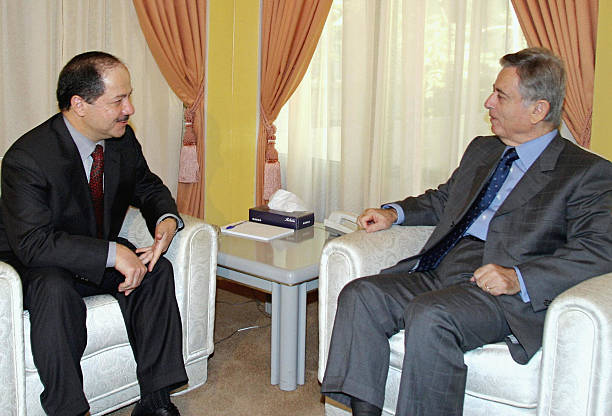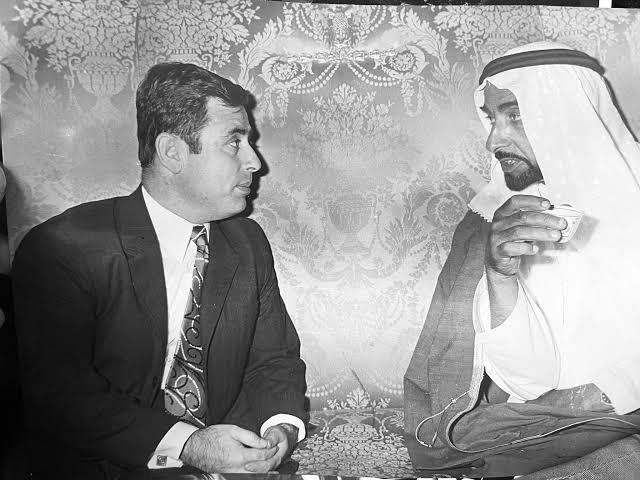On the third day of his visit to Damascus, Massoud Barzani, the leader of the Kurdistan Democratic Party, held a meeting with Syrian Vice President Abdel Halim Khaddam. They discussed significant issues related to the Iraqi crisis and matters concerning the Kurds.
While Syrian official sources stated that the meeting primarily focused on the situation in Iraq, the suffering of the Iraqi people, and the importance of national unity and the prevention of internal conflicts, other sources indicated that the central topic to be discussed with Barzani is the concerns regarding the establishment of a Kurdish state in northern Iraq and the alleged increase of Israeli influence in Iraqi Kurdistan, which the Kurds have consistently denied.
Barzani will strive to defend the position of the Kurds, who have been accused of involvement in the Kurdish unrest in northeastern Syria, and emphasize the positive relations between Syria and the Iraqi Kurds. He will highlight the support provided by Syria to the Kurds against the regime of the deposed Iraqi President Saddam Hussein. Barzani and Jalal Talabani have sought refuge in Syria at different times.
Syrian-Kurdish relations have experienced a period of significant detachment following statements attributed to Syrian Foreign Minister Farouq al-Shara, in which he suggested that the Kurds and Israel were the only beneficiaries of the fall of Iraq.
Barzani’s visit serves as a strong message reassuring Damascus of the Kurds’ commitment to respecting the wishes of Syria, Iran, and Turkey in not establishing a separate Kurdish state in northern Iraq.
Barzani will convey to Syrian officials that the Kurds intend to remain within the framework of Iraq, as outlined in the Iraqi State Administration Law, which granted the Kurds significant autonomy.
One issue that Barzani will raise with the Syrians is the matter of Kirkuk and the Kurdish demand for the city to be included as part of the autonomous Kurdistan region. This demand is unlikely to satisfy both Syrians and Turks.



